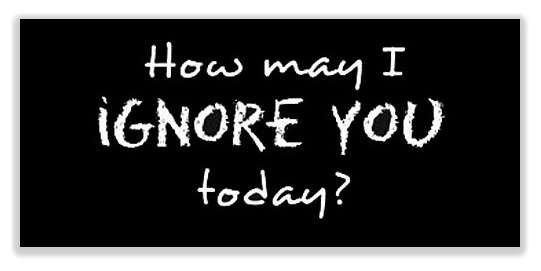We post news and comment on federal criminal justice issues, focused primarily on trial and post-conviction matters, legislative initiatives, and sentencing issues.
HOLD ON TO YOUR HATS…
 Federal criminal cases generally move along at a brisk clip (“brisk” here being a relative term in the judicial system). For instance, the Speedy Trial Act requires that trials begin 70 days after indictment (although the statute has more holes than a Swiss cheese factory). Courts are usually parsimonious with continuances. Federal criminal subpoenas are sufficient to haul in witnesses from anywhere Old Glory flies, and motion deadlines are abbreviated.
Federal criminal cases generally move along at a brisk clip (“brisk” here being a relative term in the judicial system). For instance, the Speedy Trial Act requires that trials begin 70 days after indictment (although the statute has more holes than a Swiss cheese factory). Courts are usually parsimonious with continuances. Federal criminal subpoenas are sufficient to haul in witnesses from anywhere Old Glory flies, and motion deadlines are abbreviated.
When final judgment is rendered and the sentence imposed, a criminal defendant has a mere 14 days to file a notice of appeal, if he wants to challenge the conviction or sentence in the court of appeals. In the more casual federal civil world, parties wishing to appeal have 30 days, and if the party is part of the government (where nothing is done quickly), it has 60 days.
Adding to the tight appeal deadline is the fact that the defendant is often otherwise occupied, being in jail awaiting the bus ride to his or her final prison destination. It really falls to the defendant’s lawyer to get the notice of appeal – which, after all, is all of a paragraph long – on file.
 If a defendant misses the 14-day deadline, he or she has one final shot, a 30-day period after that during which the district court may extend the filing deadline for “excusable neglect or good cause.” An Eastern District of New York defendant successfully made that showing the other day – a rare occurrence – and in so doing drawing an unusual scorching for his lawyer from the court.
If a defendant misses the 14-day deadline, he or she has one final shot, a 30-day period after that during which the district court may extend the filing deadline for “excusable neglect or good cause.” An Eastern District of New York defendant successfully made that showing the other day – a rare occurrence – and in so doing drawing an unusual scorching for his lawyer from the court.
David Gotterup, who was convicted of mail, wire and bank fraud, was sentenced to 135 months on June 1 of this year. Although he had two lawyers representing him, he had to get his brother – who was not an attorney – to drop off his notice of appeal at the court. His brother, being a busy guy, got it there one day late, on June 16 instead of June 15. Dave promptly filed for permission to file one day late.
Eastern District of New York Judge Nicholas Garaufis held a hearing on Dave’s motion just a week ago. It found that Dave had told Joseph Conway, one of his lawyers, right after sentencing that he wanted to appeal. Dave said so. Lawyer Conway said so, but he also explained that Dave’s plea agreement contained an appeal waiver.
Dave pointed that even under the waiver, he was allowed to appeal on ineffective assistance of counsel grounds. Lawyer Conway said he told Dave that “he could file an appeal and ask for new counsel” if he wanted to. Conway even helped Dave’s brother complete the notice of appeal form and gave him filing instructions.
Dave, on the other hand, claimed he “was always under the impression that Mr. Conway was filing the appeal and that the appeal was in motion.” He thought the “only delay” was the filing fee that his brother “went and paid.” In fact, right up to the August 1 hearing, Dave “didn’t actually know that [he] was filing a motion… to be completely honest, I thought I was being represented by Mr. Conway in my appeal.”
 The District Court found excusable neglect justifying Dave’s late filing “due to the fact that Defendant reasonably believed that Trial Counsel was handling the filing of his notice of appeal.” Dave had promptly told his Conway he wanted to appeal, and because he was locked up, he had to rely on Conway to get the job done.
The District Court found excusable neglect justifying Dave’s late filing “due to the fact that Defendant reasonably believed that Trial Counsel was handling the filing of his notice of appeal.” Dave had promptly told his Conway he wanted to appeal, and because he was locked up, he had to rely on Conway to get the job done.
Judge Garaufis found that Conway’s later attempts to shift responsibility for the filing to Dave “understandably confused Defendant,” and clearly was skeptical about the lawyer’s story:
Mr. Conway represents that after the Amended Judgment was docketed, he told Defendant that he would need to file his notice of appeal pro se. Defendant avers that Mr. Conway ‘never said anything about a pro se representation.’ Even assuming that Mr. Conway’s version of the facts is true, Mr. Conway’s actions thereafter proved to be inconsistent with his directive that Defendant should proceed pro se. First, by Mr. Conway’s own account, Mr. Conway invited Defendant’s brother to his law office to help him fill out the notice of appeal form. It is not as though Mr. Conway extricated himself from the filing entirely. As such, Defendant’s belief that his brother ‘wasn’t filing a notice of appeal’ and was merely ‘picking up paperwork from Mr. Conway to drop off at the court,’ was entirely reasonable.
 Second, after the Amended Judgment was entered, Mr. Conway continued to represent Defendant with respect to the restitution portion of his case. At the Hearing, Mr. Conway appeared to argue that his representation ended when the Amended Judgment was docketed on June 1, 2017; however, the Government represents that, as late as June 23, 2017, Mr. Conway was still acting as counsel for Defendant.
Second, after the Amended Judgment was entered, Mr. Conway continued to represent Defendant with respect to the restitution portion of his case. At the Hearing, Mr. Conway appeared to argue that his representation ended when the Amended Judgment was docketed on June 1, 2017; however, the Government represents that, as late as June 23, 2017, Mr. Conway was still acting as counsel for Defendant.
Judge Garaufis felt lied to, and made that clear, saying that “Conway misled the court by stating that once the Amended Judgment was filed, his ‘services to [Defendant] were over’… This splitting of hairs understandably confused Defendant. It is entirely reasonable for a defendant to think that an attorney handling one aspect of the case is handling the case in its entirety.
Conway argued that his retainer agreement did not contemplate appellate work, and that Dave’s plan to claim lawyer ineffectiveness precluded Conway – the presumed target of that claim – from filing the notice of appeal. The District Court noted that Conway was not just an experienced defense attorney but a former Assistant U.S. Attorney for 15 years who headed E.D.N.Y.’s criminal division. “As such,” the Court said, “he is quite obviously aware of trial counsel’s obligation to protect the appellate rights of a criminal defendant by timely filing a notice of appeal.”
 Judge Garaufis wrote that Conway “abandoned his client and left the task of filing a notice of appeal to his incarcerated client and Defendant’s brother who, importantly, is not an attorney… Based on Mr. Conway’s conduct, Defendant has a plausible claim of malpractice against his attorney. The court said Conway’s refusal to file the notice of appeal was “inexcusable as a matter of ethics and professionalism. As such, the court intends to refer this matter to the Committee on Grievances…”
Judge Garaufis wrote that Conway “abandoned his client and left the task of filing a notice of appeal to his incarcerated client and Defendant’s brother who, importantly, is not an attorney… Based on Mr. Conway’s conduct, Defendant has a plausible claim of malpractice against his attorney. The court said Conway’s refusal to file the notice of appeal was “inexcusable as a matter of ethics and professionalism. As such, the court intends to refer this matter to the Committee on Grievances…”
Conway told New York Law Journal last Friday “I wholeheartedly disagree with the decision and look forward to an opportunity to present my case.” He apparently overlooked that he had a chance to present his case in front of U.S. District Judge Nicholas Garaufis a couple weeks ago. And that did not turn out so well.
United States v. Gotterup, Case No. 15-CR -498 (E.D.N.Y., August 14, 2017)
– Thomas L. Root

